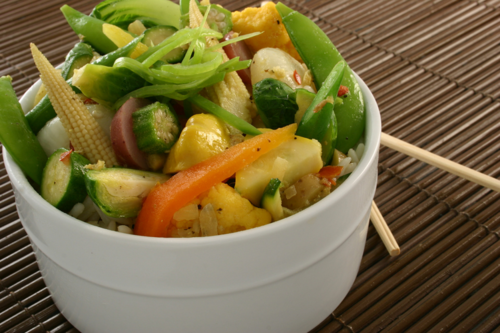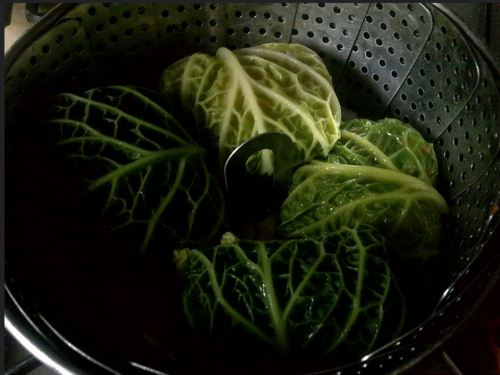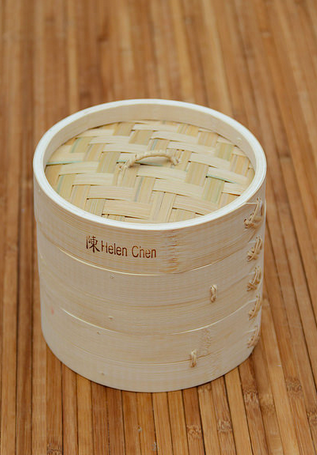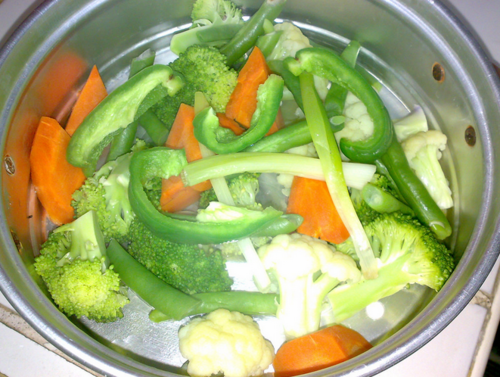
Steaming is one way of cooking vegetables and is a healthy way of preparing vegetables as it retains a high level of the original nutrients found in the vegetables.
Steamers

Utensils usually used for steaming vegetables can be made from plant matter or from metals. Typical steamers are made from stainless steel or bamboo. In some cases, a steamer is added to a saucepan, while in other cases, the saucepan includes a pot specifically designed for steaming.

Vegetables suitable for steaming
Many vegetables can be steamed. Root vegetables tend to take longer than other vegetable types, but can be steamed too, provided they are cut into small enough pieces or sufficient time is allowed for their steaming.
Typical vegetables used for steaming include: Broccoli, peas, corn, carrots, cauliflower, beans, baby corn, greens such as bok choy/cabbage, asparagus, etc. Root vegetables such as pumpkin, potato and sweet potato are often steamed too.
Preparing food for steaming
Wash and cut the vegetables to be steamed. When cutting, keep all the vegetables in evenly-sized pieces so that they will all steam at the same rate.
If steaming different vegetables at the same time, cut the vegetables to the size needed for each particular vegetable to allow each variety to steam at the same rate as each other type of vegetable. This may take some trial and error learning. Better yet, when mixing vegetables such as root vegetables and leafy greens, the root vegetables should go in first, then the other vegetables added at appropriate stages.
An alternative approach is to use stacked steamers, with the vegetables that take the longest on the bottom level through to the fastest cooking vegetables on the top level. See above for an image of a stacked steamer.
Steaming vegetables

Prepare the steamer. Place water in the pot used for steaming, place the cut vegetables into the steamer and place onto the heat. Add the lid to trap in the steam. Cook over a high temperature (unless a recipe suggests doing otherwise). The lid should fit tightly and the water in the pot should not touch the vegetables, so ensure that the steamer is set up high enough.
Different vegetables require different steaming times. Charts can be found online, or individual recipes for specific vegetable types will explain the time. Perhaps a chart can be added here at some stage, feel free to do so.
Serving steamed vegetables
After steaming, remove the lid with care. Always face it away from you, to avoid being burned by the steam on your hands/wrist and face.
Serve steamed vegetables as soon as they're ready, along with rice, pasta, meat, meat protein equivalent, etc.